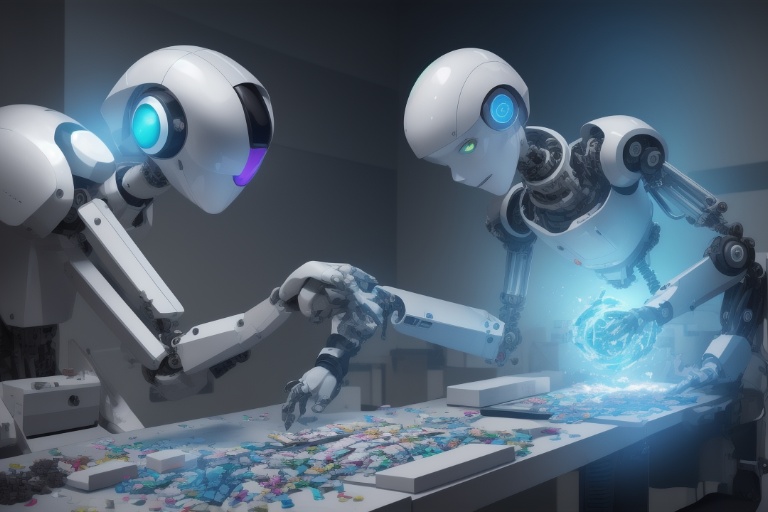The music industry has undergone a significant transformation in recent years, thanks largely to advances in artificial intelligence (AI). This powerful technology has touched every aspect of the industry, from the production of music to the way it's marketed and enjoyed by fans around the world. It's a fascinating journey into the future of melody and harmony, shaped by the innovative use of machines.
The music industry has undergone a significant transformation in recent years, thanks largely to advances in artificial intelligence (AI). This powerful technology has touched every aspect of the industry, from the production of music to the way it's marketed and enjoyed by fans around the world. It's a fascinating journey into the future of melody and harmony, shaped by the innovative use of machines.
AI Revolutionizing Music Production
One of the most notable impacts of AI is the way it has revolutionized music production. Now, aspiring artists with access to AI-powered tools can produce music that sounds professional without having a recording studio or expensive equipment. This democratization of music production has opened up the industry to a wider range of talent, providing opportunities for those who might have found the barriers to entry insurmountable in the past.
AI doesn't just help artists produce music; it also enhances creativity. It allows for the exploration of new sounds and genres, letting musicians push the boundaries of what’s possible. This can lead not only to unique compositions but also to new musical trends that might never have emerged without the help of AI.
Breathing New Life into Classic Hits
An exciting development is how AI is being used to breathe new life into older recordings. By breaking down these tracks into their individual components, known as stems, technology has cast a revitalizing spell on classic albums. Not only does this rejuvenate beloved tracks for long-time fans, it also paves the way for new revenue streams for owners of music catalogs, ensuring that the anthems of yesteryear remain profitable and relevant.
Transforming Fan Experiences
On the consumer side of things, AI has significantly transformed how fans experience music. Innovative technologies give music enthusiasts more autonomy by allowing them to interact with and modify songs. Fans can now create personal remixes or adjust specific elements of a track to suit their tastes, heightening their engagement with the music they love.
Encouraging Virtual Collaborations
Perhaps one of the most intriguing applications of AI in the music industry is its role in fostering collaborations. This technology creates partnerships that were once impossible—such as pairing current artists with legends who have long since passed away. These posthumous collaborations are not only a tribute to the musical influences of the past but also a testament to the endless possibilities brought by AI.
Insight and Analytics Powering the Industry
Another significant advantage of AI in the music industry is the insights it provides into listener behavior. Musicians and record labels now use AI algorithms to parse through massive amounts of data, identifying patterns, trends, and preferences. This information is invaluable for making informed decisions, from the kind of music produced to marketing strategies tailored to resonate with specific audiences.
Future Considerations and Challenges
As we look toward the future, the importance of AI in the music industry cannot be overstated. However, with these advancements come challenges and ethical considerations. Issues such as copyright infringement, the authenticity of AI-produced music, and the potential impact on human creativity are areas that require careful contemplation and discussion.
But as AI continues to evolve, its potential to shape the future of music grows. For artists, industry professionals, and fans, embracing this technology is crucial. AI is not just a tool; it's a powerful ally that empowers and inspires, opening doors to new experiences and innovations that will continue to redefine the music industry for decades to come.
In the end, one thing is clear: the symphony of AI and music is just beginning, and its potential is as expansive as it is exciting. As we continue to explore the harmony between human creativity and machine intelligence, the result will be a richer, more diverse world of music that benefits everyone who has ever tapped their foot to a rhythm or been moved by a melody. The future of music, with AI at its heart, promises to be a melodious blend of the old and the new, harmonizing in ways we are only just beginning to imagine.
Information for this article was gathered from the following source.




